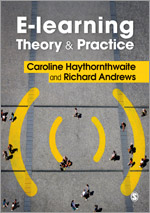Hands-on, Practical Guidance for Educators
From math,
literacy, science, equity, multilingual learners, and SEL, to assessment, school counseling,
and education leadership, our books are research-based and authored by experts
on topics most relevant to what educators are facing today.

E-learning Theory and Practice
In E-learning Theory and Practice the authors set out different perspectives on e-learning. The book deals with the social implications of e-learning, its transformative effects, and the social and technical interplay that supports and directs e-learning.
The authors present new perspectives on the subject by exploring the way teaching and learning are changing with the presence of the Internet and participatory media; providing a theoretical grounding in new learning practices from education, communication and information science; addressing e-learning in terms of existing learning theories, emerging online learning theories, new literacies, social networks, social worlds, community and virtual communities, and online resources; and emphasizing the impact of everyday electronic practices on learning, literacy and the classroom, locally and globally.
This book is for everyone involved in e-learning including teachers, educators, graduate students and researchers.
- Grade Level: PreK-12
- ISBN: 9781849204712
- Published By: Sage UK
- Year: 2011
- Page Count: 272
- Publication date: April 30, 2011
Review Copies
Review copies may be requested by individuals planning to purchase 10 or more copies for a team or considering a book for adoption in a higher ed course. Request review copy



